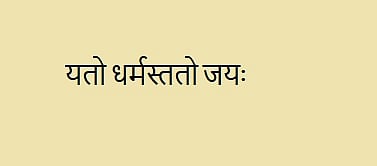Ramayana literally means the ‘journey of Rama’, from the birth (avataran) to the end of incarnation (avatar samapti). Ramayana is categorised into six parts or Kandas. Bala Kanda deals with the childhood of Shri Rama. Ayodhya Kanda with the post-marriage stay before departure for forests. Forest tenure gets covered in Aranya Kanda. Kishkinda Kanda deals with Rama’s alliance with Sugriva. Hanuman’s venturing into Lanka is dealt with in Sundara Kanda. The final culmination, the act of war is narrated in obvious Yuddha Kanda. With the other five Kandas having direct reference to the phase or the activity that happened during that particular Kanda, Sundara Kanda stands out in terms of nomenclature. So, why Sundara Kanda is called ‘Sundara’ (beautiful) ‘Kanda’ (part) becomes an interesting exploration.
Sundara Kanda deals with Shri Hanuman’s valiant acts, the problems he faced while trying to locate mother Sita, and his triumphant way of marking his presence in Lanka. The last act includes part destruction of gardens and palaces in the city-state. Thus, the lead in the Sundara Kanda is Hanuman. Hanuman’s other names include Anjaneya, Kapeesha, Vayu-Putra, or Kesari-Nandan. Less known is his original name of ‘Sundar’ which he had before turning Hanuman when hit on the jaw by Indra. Thus, as Sundar was the lead, it is appropriately known as Sundara Kanda.
Additionally, the planning of the journey to Lanka, the leads Vanaras got, the overcoming of various obstacles, and finally, the victory (jaya) are so beautifully depicted in Sundara Kanda that it is naturally called so. The beauty of the city of Lanka and its spots also justify the name of Sundara Kanda, as this Kanda majorly happened in Lanka. The outstanding conduct of the main characters involved is so beautifully depicted in the Kanda, whether it is the exemplary character of Hanuman or wise counsel of Vibhishana, or the stand of Sita, each is beautiful in itself. Thus, Sundara Kanda is appropriately named.
Sundara Kanda is regularly studied as ‘paraayana’. The intended benefit is overcoming obstacles of all kinds, including harmful ‘astrological transit’ of grahas. The hopeless state of Vanaras and the depression of Sita melted away by the end of Sundara Kanda, so also the problems of the jajman is the belief.
The writer is a professor at VPSoM, Navi Mumbai. Views are personal. You can read more at https://www.ainavolu.in/blog









